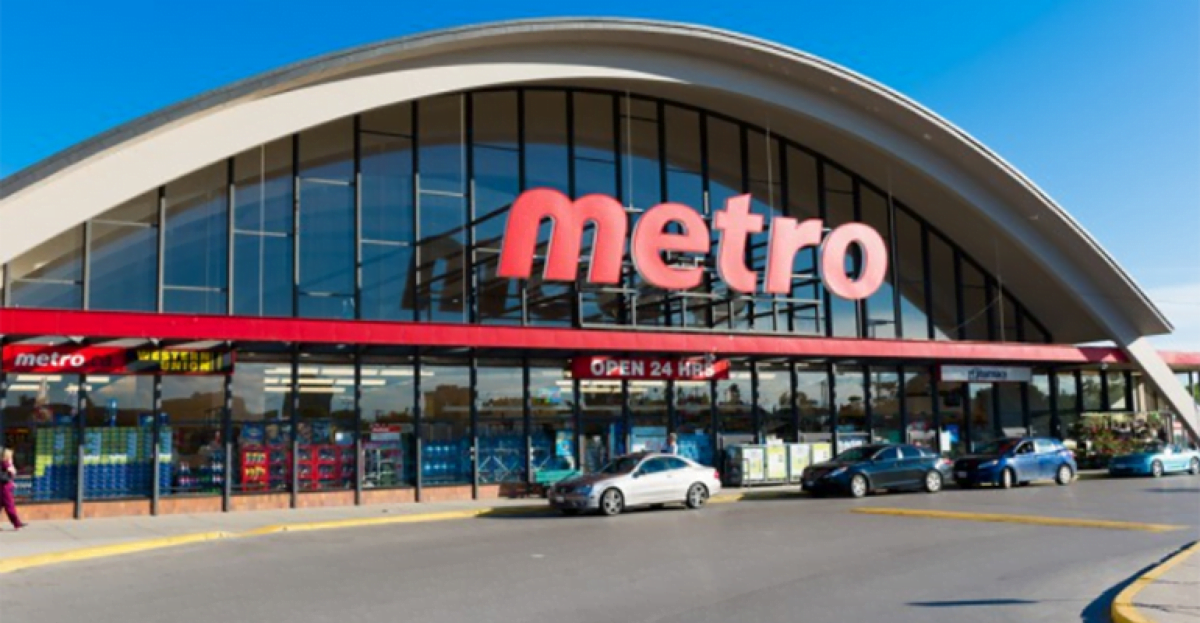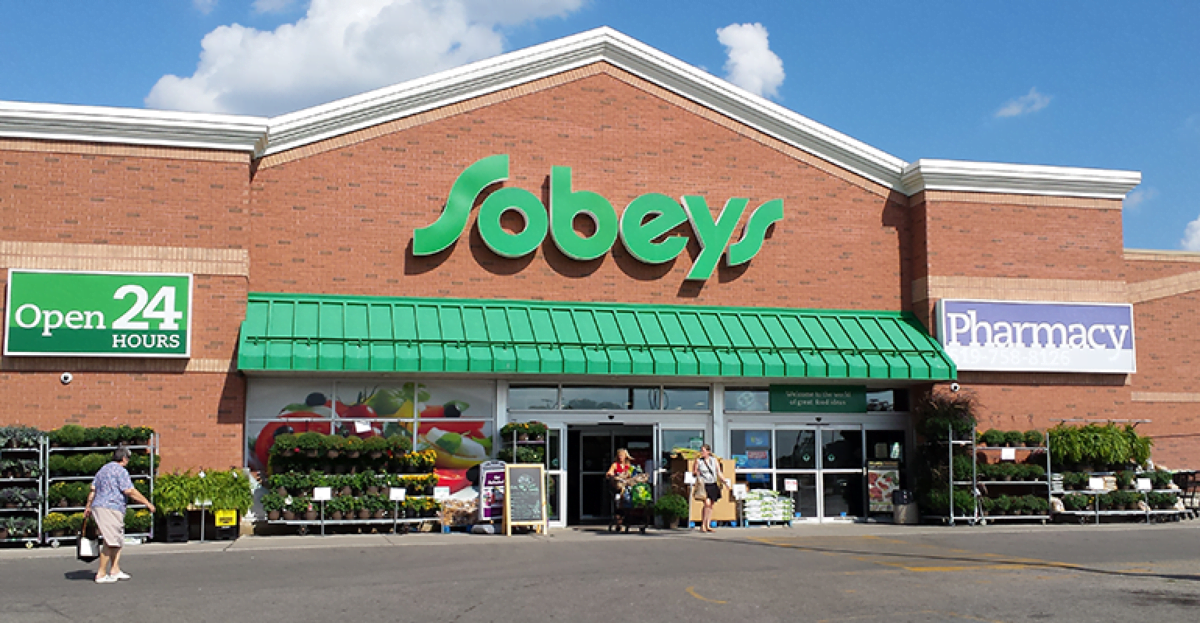Major Canadian grocers in Canada are at it again. After Walmart and Metro, it was Loblaws’ turn to make changes to its vendor policies, implementing new fees to support a $6 billion plan to improve its in-store and digital operations. A letter written by Loblaws President, Sarah Davis, was leaked to the media. Over the summer, Walmart and Metro stated similar motivations. Sobeys, the only one left, if you exclude Costco, opted not to copy Loblaws, Walmart, and Metro. It was announced by Empire CEO, Michael Medline, this week.
This has been going on for years. Justifications have ranged from mitigating climate change to implementing new ERP systems to following new packaging rules. This time, it is mostly about e-commerce, given our appetite for more food deliveries. Digitizing food retailing will be a priority as we come out of COVID. Simply put, it’s supply chain bullying.
The tone of Loblaws’ letter was telling, as if the company knew the letter would be shared broadly. Loblaws, as did Walmart and Metro, argued that they were protecting consumers from higher food prices by implementing new fees. The message has been consistent over the years as grocers have always positioned themselves as consumers’ socio-economic guardians.
But the true cost of these measures is an increasingly weakened food manufacturing sector and the slow disappearance of the independent grocery retail landscape. Since 2012, the food manufacturing sector has lost more than 40,000 jobs due to plant closures and lack of investments. Margins have become razor-thin, making it ever more challenging to justify any further investments in Canada, whether it is a multinational company looking at increasing its footprint in Canada, or smaller, family-owned operations trying to grow their business. Maple Leaf Foods just built a $300m plant in the U.S. to support its newly established plant-based division. Maple Leaf Foods, of all companies, and many of the ingredients needed to support its U.S.-based plant come from Canada.


Food manufacturing is really the centrepiece of our entire agri-food sector and it is slowly eroding because of all these measures. Without a strong processing sector, farmers must look abroad for opportunities, which in turn increases the chances of seeing more imported products on our grocery shelves. Typically, manufacturing is where most of the innovation and growth come from in the food sector. Domestic research supported by the private sector to develop groundbreaking ideas has been gutted over the last few years. As a result, more food innovation is being imported into Canada in recent years when it should be the other way around.
Measures by the larger chains are also affecting the ability of independent grocers to offer unique and often locally produced products. Major grocers are off-loading costs on to suppliers while smaller, independent grocers must cover such costs themselves. Independents are typically more receptive and inclined to sell locally grown or locally designed food products. Many of our entrepreneurs in the food sector get their only chance by dealing with independents. The dominating oligopoly in Canada in food retail will only further its position and threaten the ability of independents to stay in the game. According to the Canadian Federation of Independent Grocers, the net profit for each store in Canada before taxes was 1.5% of sales. That percentage is close to what Loblaws is asking its suppliers to pay in addition to existing fees. As such, instead of seeing food prices drop, as some major grocers are claiming, we could see the opposite happening.

Before COVID-19, fewer than 40% of independent grocers were offering e-commerce. That percentage is likely to go up, but unlike Walmart, Metro, Loblaws, and potentially Sobeys, independents are on their own.
One solution being presented these days is the creation of a code of practice between suppliers and grocers.
Sobeys, our country’s no. 2 grocer, is supportive of such a code. Under such a code, a grocer would be required to deal with its suppliers fairly and lawfully. This is certainly subject to many interpretations, of course. But if such a code existed in Canada, Loblaws’ letter would not be compliant, at least in spirit. Both Quebec and British Columbia have shown some level of interest in implementing a type of code, as the United Kingdom and Australia have done, but discussions have been informal, at best. The federal government, on the other hand, which could certainly provide some leadership, could not be bothered to look at this complex issue.
But indeed, it is complicated and the risks in implementing such a code are real. An ill-designed code could entice grocers to go south and procure products from the U.S. or elsewhere, making the problem worse. But we have now reached a point where a solution is needed. Otherwise, we will eventually import many more products, hampering the agri-food sector’s ability to grow, moving forward.


![Consumers in Canada Want Lower Food Prices, which could Compromise Food Security [Op-Ed]](https://retailinsider.b-cdn.net/wp-content/uploads/2024/05/FA-324x160.png)
![Loblaw Share Price Goes Up Following Boycott, Weston Wealth Increases by $540mill [Op-Ed]](https://retailinsider.b-cdn.net/wp-content/uploads/2024/05/Surrey-06-1024x683-1-324x160.jpg)
![Why the Loblaw Boycott is a Useless Attempt to Address Grocery Pricing [Op-Ed]](https://retailinsider.b-cdn.net/wp-content/uploads/2024/04/loblaw-21-324x160.png)
![Many Canadians Are Risking Illness by Eating Expired Food with Grocery Inflation [Op-Ed]](https://retailinsider.b-cdn.net/wp-content/uploads/2024/04/1565291916714-324x160.jpeg)
![Disposable Income Spent on Food by Canadians Varies by Provincial Tax Rates [Op-Ed]](https://retailinsider.b-cdn.net/wp-content/uploads/2024/04/Interstore_Schweitzer_Sobeys_Orangeville_15-copy-324x160.jpg)
![Lower Income Households in Canada Struggling to Afford Groceries Despite Increased Trudeau Government Spending [Op-ed]](https://retailinsider.b-cdn.net/wp-content/uploads/2024/04/2019_Loblaws_LSL1099-9-web-1-324x160.jpg)
![Canada’s Agri-Food Sector Lacks Vision as Consumers Struggle with Grocery Prices [Op-Ed]](https://retailinsider.b-cdn.net/wp-content/uploads/2024/04/superstore-324x160.png)
![Significant Variances in Food Price Changes Not Reflected in Statistics Canada Numbers [Op-Ed]](https://retailinsider.b-cdn.net/wp-content/uploads/2024/04/grocery-25-324x160.png)
